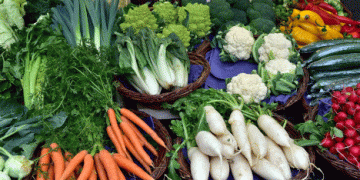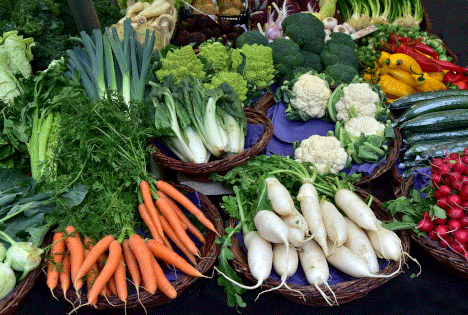Denmark, known for its commitment to sustainability and healthy living, is facing a complex economic debate over the reduction of the value-added tax (VAT) on organic fruits and vegetables. The current 25% VAT rate has been a target of reform for some time, with calls from various stakeholders to reduce it to 15% in an effort to make organic produce more affordable and stimulate higher consumption.
At the heart of the debate lies the tension between the potential health benefits and the substantial cost to public finances. While lowering VAT on organic produce could offer significant savings for Danish households, the financial burden on the government remains a critical concern.
Economic and Health Benefits of a VAT Reduction
Proponents of the VAT reduction argue that lowering the tax on organic fruits and vegetables would not only benefit consumers but also yield long-term savings in public health. A study by the University of Copenhagen estimates that a four-member family could save around 1,400 Danish Kroner (DKK) per year, approximately €187, on their food bills if the VAT on organic produce were lowered from 25% to 15%.
In addition to household savings, there are potential benefits for the Danish healthcare system. Health experts have highlighted that increased consumption of organic fruits and vegetables could lead to healthier diets across the population, reducing the incidence of lifestyle-related diseases such as obesity, diabetes, and heart disease. According to the study, the Danish health system could save approximately 25 million DKK annually due to lower healthcare costs from improved dietary habits.
Fiscal Concerns: A Costly Proposal for the Danish Treasury
While the potential savings for consumers and the healthcare system are compelling, the Danish government remains cautious about the fiscal impact of such a significant tax cut. The estimated cost to the Danish state would amount to 2 billion DKK (over €268 million) annually in lost revenue, a considerable burden on the national budget.
Given this substantial loss of income, there has been little consensus within the government. The Danish finance minister, Rasmus Stoklund, has emphasized the need for careful analysis and a differentiated approach to VAT reform. The idea of balancing a VAT reduction on healthy, organic produce with an increased VAT on unhealthy, processed foods has been floated as a potential compromise. This approach would encourage healthier eating while maintaining government revenue.
Debates Surrounding the Social and Economic Impact
One of the key issues being debated is whether a reduction in VAT would actually lead to a significant increase in the consumption of organic fruits and vegetables. Some studies, including one from the University of Copenhagen, suggest that lower prices could lead to a rise in demand, translating into broader social savings of up to 12 billion DKK over time due to healthier eating habits. However, these findings have been met with skepticism within the government, which questions the long-term efficacy of such a policy in changing consumer behavior.
Minister Stoklund has stated that a thorough evaluation will be conducted in collaboration with supermarket chains and other stakeholders to determine the true impact of a VAT reduction. This will include measuring how much of the price reduction is passed on to consumers and whether it leads to the desired increase in organic food consumption. The government aims to make a final decision by 2025, with a clear focus on evidence-based policy.
Looking Ahead: The Path to Healthier Consumption
As Denmark grapples with its VAT dilemma, it is clear that any decision will need to balance economic, health, and social considerations. Reducing the VAT on organic fruits and vegetables has the potential to promote healthier lifestyles and reduce healthcare costs in the long run. However, the financial trade-offs for the government are considerable, and it remains to be seen whether such a reform can be implemented without undermining public finances.
The outcome of the ongoing discussions between the government, retailers, and public health experts will likely shape the future of food taxation in Denmark. If successful, this policy could serve as a model for other countries looking to promote sustainable and healthy food systems through targeted tax incentives.
The Danish government faces a challenging decision regarding the reduction of VAT on organic fruits and vegetables. While such a policy could lead to increased consumption, better public health, and household savings, the significant revenue loss of 2 billion DKK annually is a major hurdle. The decision will depend on the results of ongoing analyses and consultations, with the aim of finding a balance between promoting healthy eating and maintaining fiscal responsibility. By 2025, Denmark may emerge as a leader in sustainable food policy if it can successfully navigate these complexities.































